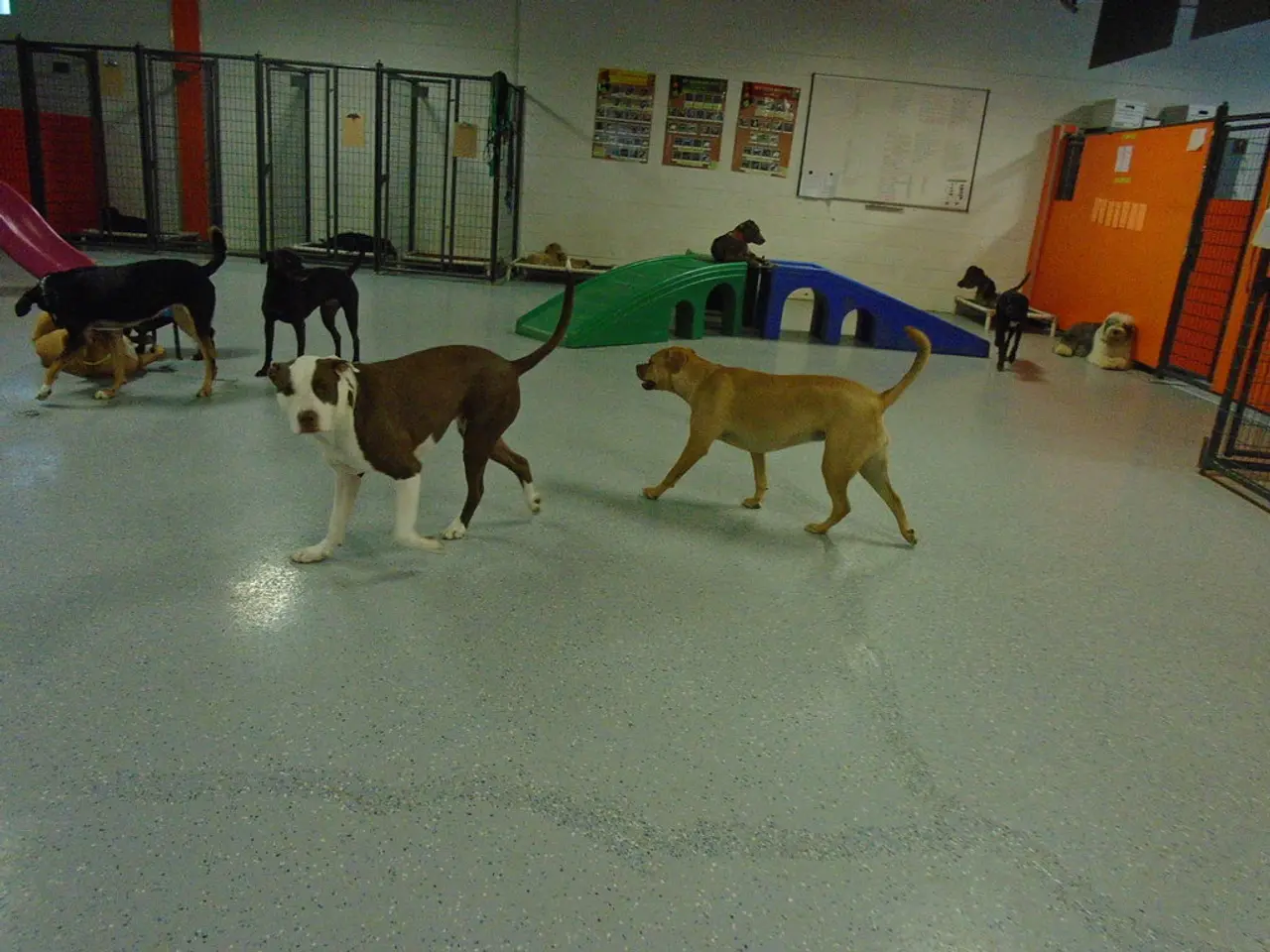Guide for Managing Pet Crises
When faced with a pet emergency, it's essential to remain calm for your pet's sake. Here's a guide to help you navigate through this challenging situation.
Dealing with Stress
In times of distress, remember that your pets can sense your anxiety. Move to a quiet corner of the waiting room, and speak to your dog or cat in a gentle, low tone to keep them tranquil and still. To help yourself remain calm, meditate, eat a snack, or distract yourself from your worries by avoiding online forums about potential health issues.
Common Pet Emergencies
Pet emergencies requiring immediate veterinary care include difficulty breathing, uncontrolled bleeding, repeated or severe seizures, persistent vomiting or diarrhea, inability to walk, trauma from accidents, poisoning, or severe allergic reactions. Urgent veterinary evaluation is critical in these situations to stabilize the pet and diagnose potentially life-threatening issues.
Difficulty Breathing
Signs of severe respiratory distress include panting excessively, wheezing, gasping, open-mouth breathing in cats, or using abdominal muscles to breathe. These symptoms indicate an urgent need for attention.
Uncontrolled Bleeding
Bleeding that does not stop within 5 minutes, especially from the nose, mouth, rectum, or due to trauma like being hit by a car, is a serious concern.
Seizures
Repeated or severe seizures, including multiple seizures within 24 hours (cluster seizures), the first-time seizure, or seizures with incomplete recovery and abnormal post-seizure behavior, may signal serious underlying conditions.
Vomiting or Diarrhea
Persistent vomiting or diarrhea (more than twice in 24 hours) risks dehydration and electrolyte imbalance and can indicate poisoning or obstruction.
Inability to Walk
Inability to walk, severe pain vocalization, refusal to eat for more than 24 hours, sudden collapse, inability to urinate, or other signs of severe injury such as swelling are also indicators of an emergency.
Trauma
Trauma from accidents, poisoning, or severe allergic reactions also constitute common emergencies.
Preparing for Emergency Visits
Upon arrival at the pet emergency room, carefully lift or carry the pet from the vehicle, and remain nearby with a charged cell phone in case the vet needs to reach you. Prepare for the possibility of hospitalization or extended treatment. During your visit, your pet may undergo a series of diagnostic tests, and results may take a while.
Financial Considerations
Pet emergencies can be very expensive. In addition to a savings account and medical and emergency pet insurance, other financial options do exist. These include monetary loans from family members, third-party payment plans, crowdsourcing, payment plans, charitable services, and assistance funds on a state or national level. It's important to research these options and ask what methods of payment are accepted.
Emergency Veterinary Services
Emergency pet services are generally more expensive than services provided at a general veterinary practice due to more frequent patient monitoring and treatments, the stocking of special life-saving drugs, the cost of emergency medical equipment, and extra training of many emergency vets and staff.
Veterinary Staff and Your Pet
The pet emergency room can be a scary and overwhelming place. However, remember to remain calm, follow tips for a stress-free check-in and waiting process, and keep your pet relaxed. The veterinarian and staff genuinely care about your pet's wellbeing and are working hard to care for multiple animals at their hospital. Be kind and respectful to them.
[1] Veterinarypartner.com [2] PetMD.com [3] Pets.WebMD.com [4] AVMA.org [5] APCC.org
- Pet first aid knowledge can be invaluable during pet emergencies, and understanding the importance of pet insurance can provide financial relief in unexpected health-and-wellness situations.
- Science and research play a crucial role in the advancement of pet health-and-wellness, particularly in the context of emergency veterinary services, where life-saving strategies are continually being refined.




